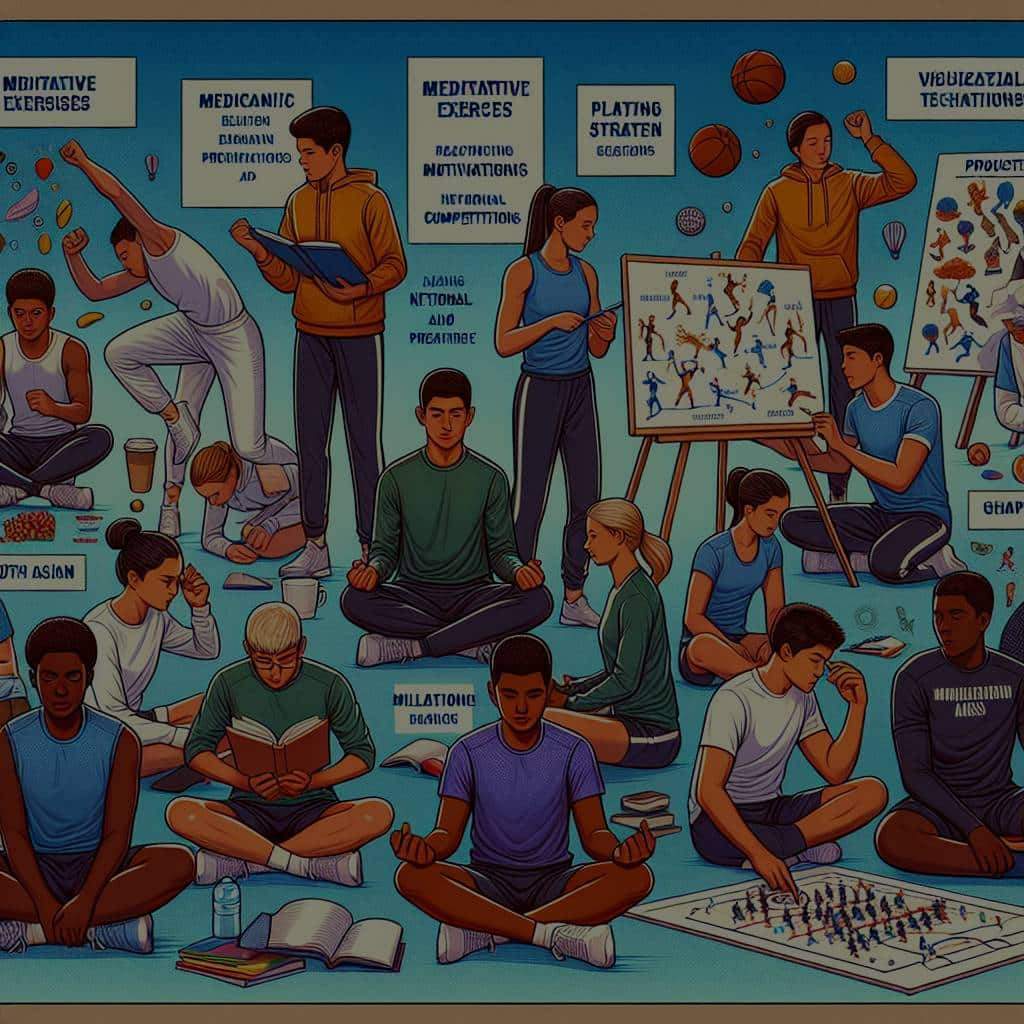How Can Youth Athletes Learn to Mentally Prepare for National Competitions?

The world of sports is as much a mental game as it is a physical one. Coaches and athletes, especially young ones, must recognize the significant role that psychology plays in sports performance. In this article, we will explore how youth athletes can prepare mentally for national competitions.
The Role of Mental Training in Sports Performance
Before we dive into the methods of mental preparation, it’s vital to understand the crucial role of mental training in sports performance. It’s easy to see the physical aspect of sports – the training, the sweat, the endless drills. However, the mental side of sports is often less visible, but just as important.
In the same genre : What Are the Benefits of Mixed Martial Arts Training for Self-Defense?
The mind is a powerful tool that can significantly impact an athlete’s performance. A well-prepared mind can help an athlete manage anxiety, improve focus, and enhance confidence, all of which are crucial in high-stakes competitions. Mental preparation is not just for professional athletes. It’s equally important for young athletes who are still developing their skills and learning to navigate the competitive sports world.
Developing a Mental Game Plan
The first step for young athletes to mentally prepare for national competitions is to develop a mental game plan. Just as you wouldn’t go into a game without a strategy, you shouldn’t go into a competition without a mental game plan.
Also read : How to Maximize Post-Workout Recovery for CrossFit Athletes?
A mental game plan involves setting goals, visualizing success, and planning for various scenarios that might occur during the competition. It helps athletes focus on what they can control and prepare for what they can’t. By having a mental game plan, athletes can reduce anxiety and uncertainty, allowing them to perform their best.
The Power of Visualization
One of the most effective mental skills that athletes can develop is visualization. Visualization is a mental technique that involves picturing oneself performing a specific activity or achieving a particular goal. Research has shown that visualization can improve performance and increase confidence.
For young athletes, this can be a powerful tool in preparing for national competitions. By visualizing themselves succeeding in the competition, they can mentally rehearse their performance and increase their confidence. Visualization should be practiced regularly, ideally as part of the athlete’s daily routine.
Mindfulness and Mental Health
Mental health is a significant aspect of sports psychology that can’t be overlooked. The pressure of competition can take a toll on an athlete’s mental health, especially for young athletes who may be experiencing these pressures for the first time.
Practicing mindfulness can be an effective way to manage stress and improve mental health. Mindfulness involves paying attention to the present moment, accepting it without judgment. This can help athletes stay focused during training and competitions and cope with stress and anxiety.
The Coach’s Role in Mental Preparation
Lastly, it’s essential to highlight the role of the coach in an athlete’s mental preparation. Coaches are not just there to instruct athletes on the physical aspect of the sport. They also play a critical role in helping athletes develop their mental skills.
Coaches can help by creating a positive and supportive environment that fosters mental strength. They can also provide resources and guidance on mental training techniques, such as visualization and mindfulness. In addition, they can help athletes develop a mental game plan and provide support and encouragement during the ups and downs of competition.
While physical preparation will always be a key component of sports performance, the importance of mental preparation cannot be overstated. By developing a mental game plan, practicing visualization, prioritizing mental health, and leveraging the support of their coaches, youth athletes can effectively prepare for national competitions.
Building Mental Toughness
One of the most integral components of mental preparation is building mental toughness. Mental toughness refers to an athlete’s ability to persevere in the face of adversity, maintain focus and confidence, and perform under pressure. It is an essential trait for any athlete, especially for young athletes who are stepping into the competitive scenarios of national competitions.
For building mental toughness, athletes should start with setting short-term and long-term goals. Goal setting is a crucial part of mental training and can motivate athletes to push through challenging circumstances, keep their focus, and strive for improvement. These goals should be specific, measurable, achievable, relevant, and time-bound (SMART). They should also be flexible to adapt to changing circumstances and progress.
Another helpful technique in building mental toughness is teaching athletes to view challenges as opportunities rather than threats. This shift in perspective can positively affect the athlete’s motivation and performance. Implementing cognitive techniques like positive self-talk and affirmations can also be beneficial in enhancing mental toughness.
Additionally, parents, coaches, and support staff can play a significant role in developing an athlete’s mental toughness. Providing athletes with constructive feedback, fostering a positive environment that encourages risk-taking and learning from failures, and emphasizing skill development over winning, can help inculcate a growth mindset, thereby enhancing their mental toughness.
The Importance of Pre-Game Routines
Pre-game routines can significantly help young athletes mentally prepare for national competitions. These routines are repetitive habits or rituals that athletes perform before a competition to help them focus, reduce anxiety, and enhance their performance.
Typically, a pre-game routine can include a combination of physical warm-up exercises, mental strategies like visualization and mindfulness, and other personal rituals that the athlete finds calming or focusing. This routine is individual to each athlete and can be developed through trial and error.
Consistency is key when it comes to pre-game routines. The more consistently an athlete performs their routine, the more it becomes ingrained, and the more beneficial it will be. Consistent pre-game routines can provide a sense of normalcy and control, which can be particularly helpful in high-pressure situations like national competitions.
Coaches can assist athletes in developing effective pre-game routines by providing guidance and support. They can help athletes identify effective components of a pre-game routine and provide resources and tools to implement them.
Conclusion
The world of youth sports is not just about physical prowess but also about mental resilience. As youth athletes prepare to represent their high schools, cities, or even the United States at national competitions, mental preparation becomes as important as physical training.
Sports psychology plays a crucial role in enhancing the performance of young athletes. Techniques like mental game planning, visualization, mindfulness, and building mental toughness can significantly impact athletes’ anxiety levels, focus, confidence, and overall performance.
Moreover, the role of the coach extends beyond teaching physical skills. They are pivotal in creating an environment that fosters mental strength and providing resources for mental training.
In conclusion, mental preparation is an integral part of sports performance. By recognizing its importance and adopting effective strategies for mental training, youth athletes can achieve peak performance and enjoy a rewarding sporting experience. It is time we acknowledged and elevated the mental aspect of youth sports to the same pedestal as physical preparation in our quest for performance enhancement.
